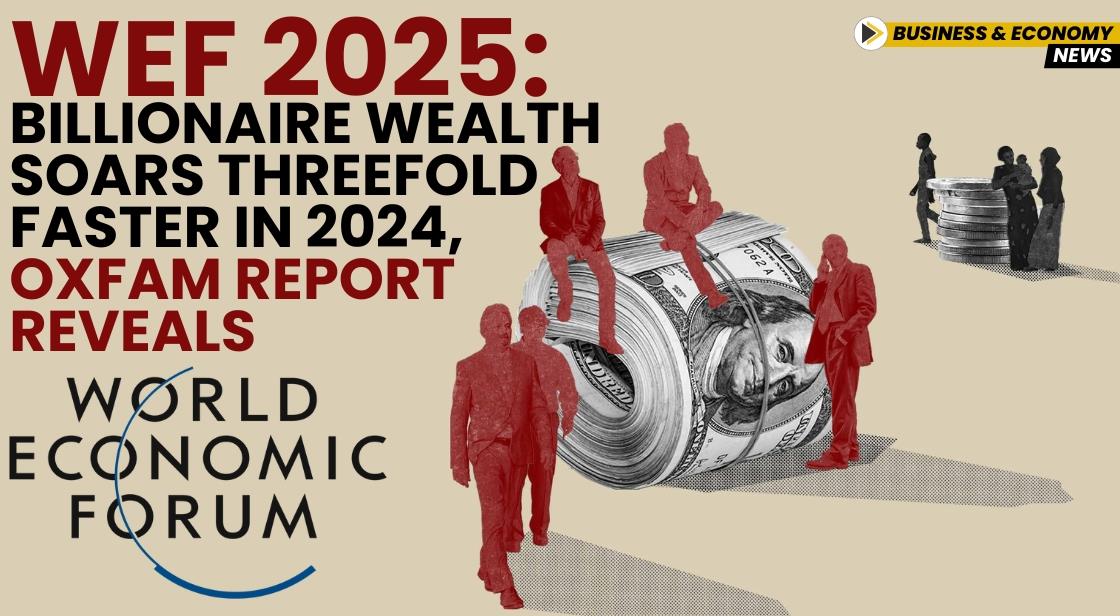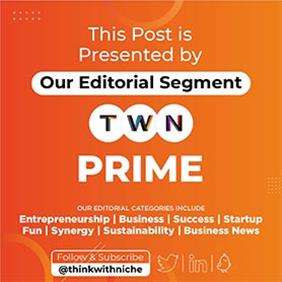WEF 2025: Billionaire Wealth Soars Threefold Faster in 2024, Oxfam Report Reveals

News Synopsis
As the World Economic Forum (WEF) 2025 convenes the global elite in Davos, a new report by Oxfam International titled “Takers, Not Makers” paints a stark picture of global wealth disparity.
According to the report, billionaire wealth skyrocketed by $2 trillion in 2024, reaching a staggering $15 trillion, while poverty levels showed minimal improvement since 1990. These findings underscore a growing inequity that continues to reshape the world’s financial systems.
Key Insights from Oxfam’s Inequity Report
A Rapid Surge in Billionaire Wealth
-
Billionaire wealth surged by $2 trillion in 2024, growing three times faster than in previous years.
-
The wealthiest individuals amassed $5.7 billion daily, with the ten richest men collectively increasing their fortunes by nearly $100 million daily.
Billionaires in Asia and Beyond
-
Asian billionaires saw their combined wealth rise by $299 billion in 2024, with the continent welcoming 41 new billionaires during the year.
-
Globally, 204 new billionaires emerged last year, averaging four new billionaires every week.
Unjust Distribution of Wealth
-
The richest 1 per cent in the Global North extracted $30 million per hour from the Global South through financial systems in 2023.
-
Despite housing 68 per cent of billionaires, the Global North accounts for only 21 per cent of the world’s population while controlling 77 per cent of billionaire wealth.
Predictions and Projections
-
Oxfam predicts the emergence of at least five trillionaires within the next decade, marking an unprecedented accumulation of wealth.
-
Inheritance, monopoly power, and cronyism now account for 60 per cent of billionaire wealth, with 36 per cent of this wealth attributed to inheritance alone.
Billionaire Wealth: A Growing Concern
“Unmerited Wealth” and Global Inequality
Oxfam’s report highlights that “extreme billionaire wealth is largely unmerited” and calls on governments to take decisive action.
-
The group urges higher taxation on the wealthiest individuals to combat inequality.
-
Former colonial powers are also called upon to provide reparations for past exploitation of poorer nations.
-
The report states: “Many of the super-rich, particularly in Europe, owe part of their wealth to historical colonialism and the exploitation of poorer countries.”
Oxfam’s Wake-Up Call to the World
In a powerful statement, Amitabh Behar, Oxfam International’s Executive Director, warned:
“The capture of our global economy by a privileged few has reached heights once considered unimaginable. The failure to stop billionaires is now spawning soon-to-be trillionaires. Not only has the rate of billionaire wealth accumulation accelerated – by three times – but so too has their power.”
Behar further criticized the influence of billionaires on politics, pointing out that a billionaire president, supported by Elon Musk, now leads the world’s largest economy.
-
He called this a “stark wake-up call”, emphasizing the crushing impact of extreme wealth on ordinary people.
Conclusion
Oxfam's “Takers, Not Makers” report, unveiled at World Economic Forum (WEF) 2025, highlights the alarming rise in global wealth inequality. The $2 trillion surge in billionaire wealth in 2024, juxtaposed with stagnant poverty reduction, underscores the disproportionate concentration of riches among a select few.
With inheritance, monopolies, and cronyism driving 60% of billionaire wealth, the report raises critical questions about merit and fairness in wealth accumulation. Predictions of trillionaires emerging within a decade add urgency to the call for global leaders to act decisively.
Oxfam’s appeal for higher taxation on the ultra-wealthy, reparations for colonial exploitation, and dismantling systemic inequities is a clarion call for change.
Without immediate interventions, the divide between the world's richest and poorest will only widen, threatening societal balance and economic stability. This report is a stark reminder that addressing inequality is not just ethical—it is essential for a sustainable and just future.
You May Like









